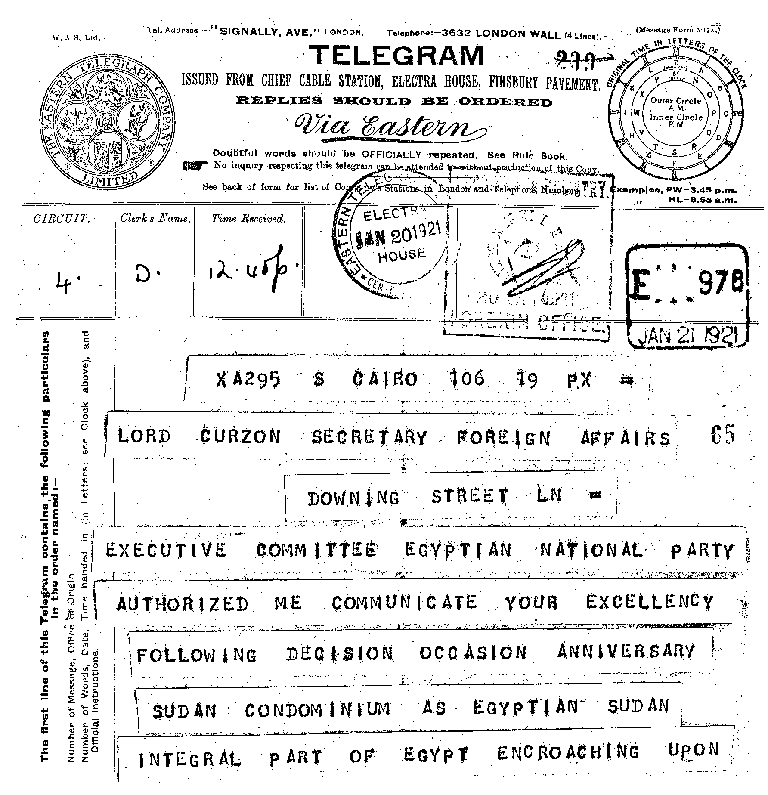East View Archive Editions
Egypt and the Rise of Nationalism: 1840–1927
Egypt and the Rise of Nationalism: 1840–1927 comprises an assembly of materials, otherwise scattered across a variety of record classes and files, whose documents capture and reflect an era spanning from the first appearance of a nationalist sensibility to its gradual entrenchment in public life through protests, journalistic agitprop, lobbying activities, sporadic violence, and then – almost as a denouement – through an ordered political process, in the context and perspective of Britain’s evolving policy regarding Egypt. The nature and length of the British presence in Egypt, in terms of the military occupation and all that entails and implies, inevitably reflects the ebb and flow of nationalist thinking and activities in its records of events during the forty years covered herein.
The collection depicts the ultimate consensus in British government policy as a response to movements and events in Egypt. Due to the official nature of the documents included, there is an inevitable bias against Egyptian nationalist sentiments for its inherent negative implications to British interests. However, some officials and politicians were more sympathetic and supportive than others, depending on the overall policy of the home government – whether a Liberal or Conservative regime, demonstrating Lord Salisbury’s truism that domestic politics were inextricably linked with foreign policy. Thus, Britain’s actions towards Egypt during the period in question were never magnanimous, but pragmatic with regards to her policies and interests, including the safeguarding of the Suez Canal and thereby the route to India. Inevitably, both sincere and ardent nationalist beliefs and anti-British sentiment and agitation had to be evaluated by British officials and politicians of the time in the specific context of these broader policy considerations, including regional and international relations, not on their intrinsic merit as a socio-political progression.
